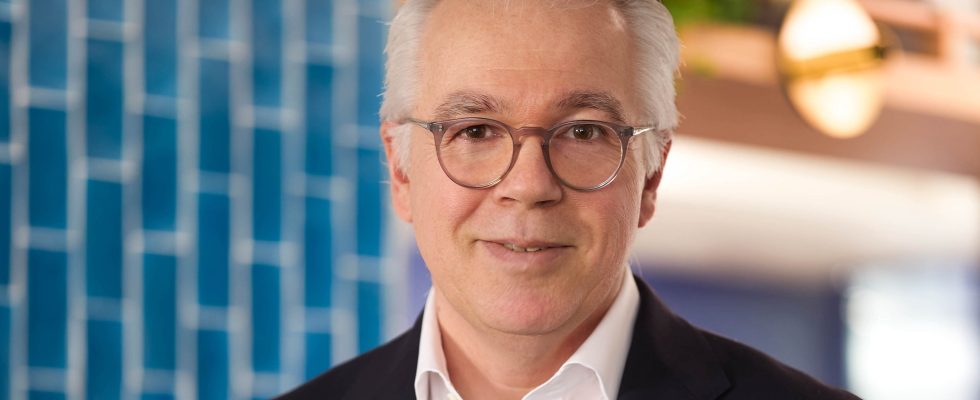This golden contract has already caused a lot of talk. At the venues of the Paris 2024 Olympic and Paralympic Games, spectators will only be able to pay for their purchases using a Visa payment card, or in cash. An exclusivity imposed by the International Olympic Committee (IOC) on the French organization, the result of a long-standing partnership with the American company.
For The Expressthe general manager for France of the world leader in payments, Romain Boisson, analyzes the lessons that Visa learned from the 2012 edition in London, where a similar partnership was set up, with the result being a boom in payment without contact.
L’Express: What do the Paris 2024 Olympic Games represent for Visa?
Romain Drink: Visa has been a partner of the IOC for 40 years and of the Paralympic movement for 20 years. The Olympic and Paralympic Games are the most resonant global event in terms of sporting value and inclusion. It therefore makes sense for Visa to be associated with it. This allows us to give all of our customers access to this competition. Some use it to set up campaigns and win places for their own customers. In France, this is particularly the case of BPCE, which is a major partner of Visa, but also of LCL, Crédit Mutuel, Crédit Agricole, Lydia and others. There are also the thousands of small and medium-sized businesses who sign up to our “Winning Payments” program, which allows users and merchants to win tickets to the Olympics.
How does this partnership translate?
On all competition sites, the Visa payment method will be accepted, but not exclusively, in the sense that it will be possible to pay in cash for those who wish. We are going to implement very innovative alternatives to allow non-Visa holders to have access to a payment card instantly and free of charge. Spectators will be able to obtain a prepaid card that can be downloaded to their phone or a physical version. Our mission is to ensure that everything goes well for the expected 10 million fans.
What lessons did you learn from the London Olympics, during which you formed a similar partnership?
As a Frenchman, I hope that we will do better than London, which is a reference at Visa. They had set the bar very high. Currently, one of the biggest merchants in terms of contactless payment is Transport for London, the tube and bus network in the English capital. This system was launched at the London Olympics. The lessons were multiple. Today, this method of payment has become the daily life of Londoners. Everyone pays with their card or phone. This contactless technology was deployed in this context, and it worked. Local businesses in the metro that had not adopted it lost turnover. There was such support that the customer wanted to have a harmonious use to use it everywhere: to pay for the café, the restaurant, etc.
How can we explain that twelve years later, the technology to pay for your transport ticket directly with your contactless card has not been implemented in Île-de-France?
This decision belongs to Ile-de-France Mobilités. There are around forty cities which have switched to this system, including Marseille, Lyon, Lille and Toulouse. In Paris, I do not despair that this will be put in place, but not for the Olympic Games. The decision is theirs and we have made ourselves available to them for a long time to be able to benefit from our know-how and our experience in order to leave a legacy, as we were able to do in London.
What does the French market represent for Visa?
This is a historically very important market and is a real land of innovation. I developed a passion for innovation when I met Roland Moréno, the inventor of the smart card, which made me want to go further into the world of payments. The French are very fond of digital payment methods. The payment card is widely used in France. Certainly less than in other countries, but it has still become the preferred means of payment for the French.
There have recently been several cases of cyberattacks against Crédit Agricole or France Travail, how are you preparing for this threat to the Paris Olympics?
With the current geopolitical context, cybersecurity is a major subject for which all our expertise is ready. We are engaging the entire ecosystem on this issue which is extremely serious. I would like to reassure everyone: our systems are built to ensure permanent continuity of service. They have never experienced an intrusion to date. To be able to play in this field, we have made billions of investments and hundreds of employees work on this subject every day.
.
